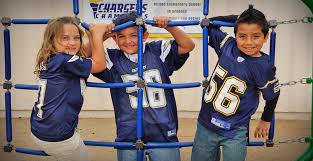Government Grants
Business Grants
Home Owner Programs
Federal Programs
About Us
Native American Elder Justice Initiative
The Native American Elder Justice Initiative (NAEJI) will address the need for more culturally appropriate information and community education materials on elder abuse, neglect, and exploitation in Indian Country.
It is expected that activities carried out under NAEJI will address at least one
(1) of the needs listed below:
a) Identify, develop, or disseminate information and strategies on effective collaborations between tribal and non-tribal entities to address suspected cases of abuse, neglect, or exploitation; b) Assist Tribes in the development of tribal codes that protect seniors, building on existing work to develop model codes and an implementation toolkit, and maintaining examples of tribal codes to share with those creating or updating their own codes; c) Identify, develop, or disseminate informational materials for professionals and tribal members on elder abuse, neglect, and exploitation that are culturally appropriate to Tribal perceptions of abuse and Tribal values; d) Develop training and technical assistance materials about elder abuse in Indian Country, such as:
basic information about elder abuse, how to identify abuse, developing effective multi-disciplinary teams, and developing and/or promoting effective tribal prevention, intervention, and response activities, including those that involve effective cross-jurisdictional partnerships; e) Provide training, technical assistance, and outreach to increase awareness of the problem of elder abuse in Indian Country, as well as the NAEJI, such as through conference presentations, materials development, PSAs, newsletters, articles, etc.; f) Identify, develop, disseminate, or provide training to tribal professionals on elder abuse, neglect, and exploitation; and g) Explore with Tribes the needs and challenges surrounding data collection on elder abuse issues in Indian Country, including what kinds of data would be useful and to whom, how data could be collected, who would/could collect it, how would confidentiality be guaranteed, what kind of system would be necessary to house and securely store data, who would “own” the data, and other issues related to the development of data collection systems.
It is expected that activities carried out under NAEJI will address at least one
(1) of the needs listed below:
a) Identify, develop, or disseminate information and strategies on effective collaborations between tribal and non-tribal entities to address suspected cases of abuse, neglect, or exploitation; b) Assist Tribes in the development of tribal codes that protect seniors, building on existing work to develop model codes and an implementation toolkit, and maintaining examples of tribal codes to share with those creating or updating their own codes; c) Identify, develop, or disseminate informational materials for professionals and tribal members on elder abuse, neglect, and exploitation that are culturally appropriate to Tribal perceptions of abuse and Tribal values; d) Develop training and technical assistance materials about elder abuse in Indian Country, such as:
basic information about elder abuse, how to identify abuse, developing effective multi-disciplinary teams, and developing and/or promoting effective tribal prevention, intervention, and response activities, including those that involve effective cross-jurisdictional partnerships; e) Provide training, technical assistance, and outreach to increase awareness of the problem of elder abuse in Indian Country, as well as the NAEJI, such as through conference presentations, materials development, PSAs, newsletters, articles, etc.; f) Identify, develop, disseminate, or provide training to tribal professionals on elder abuse, neglect, and exploitation; and g) Explore with Tribes the needs and challenges surrounding data collection on elder abuse issues in Indian Country, including what kinds of data would be useful and to whom, how data could be collected, who would/could collect it, how would confidentiality be guaranteed, what kind of system would be necessary to house and securely store data, who would “own” the data, and other issues related to the development of data collection systems.
Related Programs
Special Programs for the Aging_Title VI, Part A, Grants to Indian Tribes_Part B, Grants to Native Ha
Department of Health and Human Services
Agency: Department of Health and Human Services
Office: Administration for Community Living
Estimated Funding: $200,000
Office: Administration for Community Living
Estimated Funding: $200,000
Who's Eligible
Obtain Full Opportunity Text:
http://acl.gov/Funding_Opportunities/Announcements/Index.aspx
Additional Information of Eligibility:
Domestic public or private non-profit entities including state and local governments, Indian tribal governments and organizations (American Indian/Alaskan Native/Native American), faith-based organizations, community-based organizations, hospitals, and institutions of higher education, are eligible to apply under this program announcement.
Individuals, foreign entities, and sole proprietorship organizations are not eligible to compete for, or receive, awards made under this announcement.
Full Opportunity Web Address:
http://acl.gov/Funding_Opportunities/Announcements/Index.aspx
Contact:
Cecelia AldridgeCecelia.Aldridge@acl.gov
Agency Email Description:
Grants Policy
Agency Email:
Cecelia.Aldridge@acl.gov
Date Posted:
2014-04-23
Application Due Date:
2014-06-02
Archive Date:
2014-07-02
Social Entrepreneurship
Spotlight
Why People Buy from Social Enterprises?

The Guardian has compiled a list of responses to its latest open thread, and has announced the winner of the social enterprise gift hamper packed with presents.

